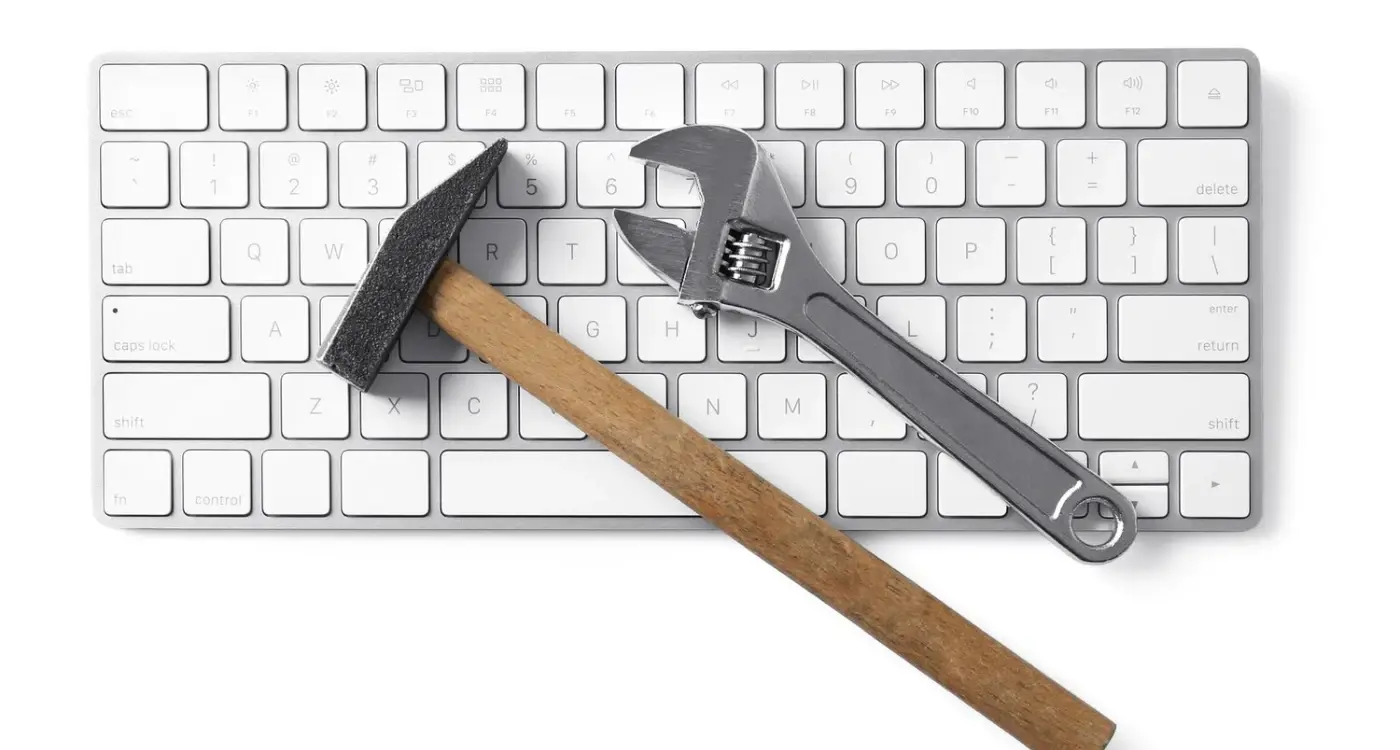What Criteria Matter Most When Assessing Mobile Developers?
Over 87% of mobile app projects fail to meet their original objectives, and poor developer selection is the leading cause. I've watched countless businesses pour money into the wrong development team, only to end up with apps that crash, miss deadlines, or simply don't work as promised. The painful truth is that choosing the right mobile developer can make or break your entire project.
When you're searching for a mobile app developer, it feels overwhelming. There are thousands of agencies, freelancers, and development studios all claiming to be the best. Some charge £5,000 for what others quote at £50,000. Some promise delivery in weeks while others talk about months. How do you separate the genuine experts from those who are just good at marketing?
The most expensive mistake in mobile development isn't choosing a costly developer—it's choosing the wrong one.
After eight years of building apps and watching this industry evolve, I can tell you that assessing mobile developers properly isn't about finding the cheapest option or the flashiest portfolio. It's about understanding what really matters when someone is going to turn your idea into reality. Whether you're a startup with your first app or an established business expanding into mobile, the developer selection criteria you use will determine whether your project succeeds or becomes another statistic. This guide will walk you through the exact mobile app developer evaluation process we use internally, covering everything from technical expertise to communication skills. By the end, you'll know exactly what questions to ask and what red flags to watch for during your app development assessment.
Understanding Developer Experience and Track Record
When I'm evaluating mobile developers, experience isn't just about how long they've been coding—it's about what they've actually built and learnt along the way. You want someone who's been through the trenches, dealt with App Store rejections, handled tricky client requirements, and most importantly, delivered apps that real people actually use.
Look for developers who can show you a variety of projects across different industries. A team that's only built shopping apps might struggle with a fitness tracking project; the technical requirements are completely different. The best developers I've worked with have tackled everything from simple business apps to complex platforms with millions of users. They understand that each project brings unique challenges.
What Makes Experience Count
Years in business matter, but not as much as you'd think. A developer with three years of focused mobile experience often outperforms someone who's been "doing mobile" for eight years but only as a side project. Check if they've worked with your target platforms—iOS, Android, or cross-platform solutions like React Native or Flutter.
Red Flags to Watch Out For
Be wary of developers who can't explain their past projects clearly or seem vague about their role in previous builds. If they're constantly switching between technologies without good reason, that's another warning sign. The mobile development world moves fast, but jumping on every new trend without mastering the fundamentals usually leads to half-finished projects and frustrated clients.
Ask to see their most challenging project and how they solved problems along the way. Good developers love talking about the tough bits—the crashes they fixed, the performance issues they solved, the user feedback that shaped their approach.
Evaluating Technical Skills and Expertise
When you're assessing mobile developers, technical skills matter more than almost anything else. I've seen brilliant project managers and charming communicators completely fall flat because they couldn't actually build what they promised. The question is: how do you figure out if someone really knows their stuff?
Start with the basics. What programming languages do they know? For iOS development, you want Swift (and maybe Objective-C for older projects). Android developers should be comfortable with Kotlin and Java programming skills. Cross-platform specialists might use React Native, Flutter, or Xamarin. But here's the thing—knowing a language and being good at it are completely different beasts.
Core Technical Areas to Check
- Native vs cross-platform development experience
- Database management and API integration skills
- UI/UX implementation abilities
- Testing and debugging practices
- App store submission and approval processes
- Performance optimisation techniques
Ask them about their approach to common challenges. How do they handle offline functionality? What's their strategy for app performance optimisation? Do they write automated tests? Their answers will tell you whether they're thinking like seasoned professionals or just winging it.
Request to see actual code samples from recent projects. Good developers take pride in clean, well-commented code and won't hesitate to show their work.
Don't forget about the less glamorous technical aspects. Version control systems like Git, continuous integration, and deployment pipelines might sound boring, but they separate the professionals from the amateurs. A developer who can't explain their development workflow is probably going to cause you headaches down the line.
Assessing Communication and Project Management
Communication can make or break a mobile app project—I've seen brilliant technical teams fail simply because they couldn't keep clients in the loop. When you're evaluating potential developers, pay close attention to how they communicate during those initial conversations. Do they respond to emails promptly? Are their explanations clear without being overly technical? These early interactions are your best indicator of what the entire project will feel like.
Good mobile developers should be able to explain complex technical concepts in simple terms. If they start throwing around jargon without checking if you understand, that's a red flag. You want a team that asks questions about your business goals and actually listens to the answers. They should also be upfront about potential challenges rather than promising the world just to win your business.
Project Management Capabilities
Strong project management goes beyond just having the right tools—though that matters too. Look for developers who can clearly outline their process from start to finish. They should be able to tell you exactly when you'll see designs, when development phases begin, and how they handle testing and deployment.
The best development teams use structured approaches with regular check-ins and milestone reviews. They'll show you examples of their project timelines and explain how they handle scope changes (because there will be scope changes!). Ask them about their backup plans when things go wrong—because experienced developers know that problems always pop up.
Red Flags to Watch For
Here are some warning signs that suggest poor communication and project management:
- Vague timelines or reluctance to commit to deadlines
- No clear point of contact for your project
- Inconsistent communication methods or response times
- Unable to explain their development process clearly
- No structured approach to handling revisions or feedback
Remember, you're not just hiring technical skills—you're entering into a partnership that might last several months. Choose developers who make you feel confident and informed throughout the process.
Reviewing Portfolio Quality and Relevance
When assessing mobile developers, their portfolio tells you everything you need to know about their actual abilities. I've looked at hundreds of portfolios over the years, and you can spot the quality ones within seconds—they show real apps that real people use, not just pretty mockups or concept designs.
The first thing I look for is variety in their work. Can they build different types of apps? E-commerce, social media, productivity tools, games—each requires different skills and thinking. A developer who's only built one type of app might struggle when your project demands something different. You want someone who can adapt their approach based on what your app needs to do.
Look Beyond the Pretty Screenshots
Screenshots can be deceiving. What matters is whether their apps actually work well and solve real problems. Check if you can download their apps from the App Store or Google Play. Try them out yourself. Are they smooth to use? Do they crash? How do they handle different screen sizes? This hands-on testing reveals far more than any portfolio presentation ever could.
A developer's portfolio should demonstrate problem-solving ability, not just design skills—anyone can make something look good, but making it work brilliantly is the real test
Relevance to Your Project
The best portfolios show work that's relevant to your specific needs. If you're building a fintech app, you want to see developers who understand complex user flows, security requirements, and regulatory compliance. If it's a consumer app, look for evidence they understand user engagement and retention strategies. Don't be impressed by irrelevant work, no matter how polished it looks—mobile app developer evaluation should focus on skills that match your project's unique challenges.
Understanding Development Process and Methodology
When you're assessing mobile developers, their process matters just as much as their coding skills. A good development team follows a clear methodology—not because they're obsessed with paperwork, but because it keeps projects on track and prevents expensive mistakes.
Most professional developers use what's called Agile methodology. This breaks your project into small chunks called sprints, usually lasting two weeks. You'll see progress regularly, give feedback, and make changes without throwing the whole project off course. It's far better than the old approach where you'd wait months to see anything, only to discover it wasn't what you wanted.
Key Process Elements to Look For
A solid development team should be able to explain their approach clearly. They'll talk about planning phases, design reviews, testing procedures, and deployment strategies. If they can't explain how they work, that's a red flag.
- Regular progress updates and demos
- Clear project milestones and deliverables
- Testing procedures throughout development
- Version control and backup systems
- Quality assurance protocols
- Post-launch support processes
Red Flags in Development Methodology
Be wary of developers who promise to build everything first, then show you the result. This waterfall approach might work for building bridges, but it's risky for apps where requirements often change. Also watch out for teams that can't explain their testing process—bugs caught early are much cheaper to fix than ones discovered after launch.
Ask potential developers to walk you through a typical project timeline. The best ones will explain not just what they build, but how they build it.
Examining Team Structure and Resources
When assessing mobile developers, understanding their team structure can make or break your project. I've seen brilliant individual developers who simply couldn't handle larger projects—and I've also worked with agencies that had impressive team sizes but lacked the right skill mix. The key is finding developers whose team structure matches your project's complexity and timeline.
Start by asking about their core team members and their specific roles. A well-structured development team should include dedicated roles for different aspects of your project. You'll want to know who's handling the technical architecture, who's managing the project, and who you'll actually be speaking with day-to-day.
Key Team Roles to Look For
- Project manager or account director
- Senior developers (iOS, Android, or cross-platform specialists)
- UI/UX designers
- Quality assurance testers
- Technical architect or lead developer
Don't be fooled by large team sizes though. Sometimes smaller, focused teams deliver better results than sprawling organisations. What matters more is whether they have the right people with the right skills for your specific project needs.
Ask about their resource allocation process too. How do they handle multiple projects? Do they have dedicated team members for your project, or will resources be shared? Understanding their capacity and workload gives you insight into how much attention your project will receive.
Request to meet the actual team members who'll work on your project, not just the sales representatives. This gives you a feel for their expertise and communication style.
The best mobile app developer evaluation includes understanding whether their team structure supports long-term maintenance and updates—something many businesses overlook during initial developer selection criteria discussions.
Checking References and Client Feedback
Getting references from potential developers is like asking for their report card—you want to know how they've actually performed, not just what they claim they can do. Most developers won't mind sharing a few client contacts; those who refuse or make excuses might be hiding something.
When you speak to previous clients, ask specific questions about deadlines, communication, and problem-solving. Did the developer deliver on time? How did they handle unexpected issues? Were they easy to reach when things went wrong? These conversations often reveal more than any polished case study ever could.
Reading Between the Lines
Online reviews and testimonials are useful, but they don't always tell the whole story. Look for patterns across multiple reviews—if several clients mention poor communication or missed deadlines, that's a red flag. Pay attention to how developers respond to negative feedback too; professional responses show maturity.
Don't just focus on five-star reviews either. Sometimes the three and four-star reviews contain the most honest feedback about what it's actually like to work with a particular team.
Beyond the Happy Path
Ask references about challenges during their projects—every development project hits bumps, so you want to know how your potential developer handles pressure. Did they communicate problems early or try to hide them? Were they solution-focused when things went sideways?
The best developers have clients who'll happily recommend them despite project difficulties, because they handled those challenges professionally and transparently.
Budget Transparency and Value Assessment
Money talks, right? But when it comes to assessing mobile developers, you want them talking straight about costs from day one. I've seen too many projects go sideways because the budget conversation wasn't handled properly at the start. Good developers will break down their pricing clearly—they'll tell you what you're paying for and why.
Here's what proper budget transparency looks like: detailed estimates that separate design costs from development costs, testing phases listed separately, and any potential extras called out upfront. The best teams I work with will even explain their hourly rates and how many hours they expect each phase to take. No hidden fees, no surprise invoices halfway through.
Understanding True Value Beyond Price
The cheapest quote isn't always the best deal. I know that sounds obvious, but you'd be surprised how often people fall into this trap when assessing mobile developers. Value assessment means looking at what you actually get for your money—will they provide ongoing support? Do they include app store submission? What about bug fixes after launch?
A transparent developer will always explain not just what something costs, but why it costs that amount and what value it brings to your project
Red Flags in Developer Pricing
Watch out for developers who won't give you a written estimate or those who ask for large payments upfront without clear milestones. Legitimate mobile app developer evaluation should include checking their payment terms—most professional teams work with staged payments tied to completed deliverables. If someone's being vague about costs or pushing for unusual payment arrangements, that's your cue to look elsewhere.
Conclusion
After working with hundreds of clients over the years, I can tell you that choosing the right mobile development team isn't just about finding someone who can code—it's about finding a partner who understands your vision and can bring it to life. The criteria we've covered throughout this guide aren't just nice-to-haves; they're the difference between a successful app launch and a costly mistake.
Experience matters, but so does relevance. A developer who's built fifty dating apps might not be the best choice for your fintech startup. Technical skills are non-negotiable, but they mean nothing if the team can't communicate properly or manage deadlines. I've seen brilliant developers create awful experiences simply because they didn't understand what the client actually wanted.
Your portfolio review should tell a story—not just about what they've built, but how they think about problems and solve them. Their development process should make sense to you, even if you're not technical. If they can't explain their methodology in simple terms, that's a red flag. Team structure matters more than you might think; you want to know who's actually working on your project, not just who's selling it to you.
References and client feedback will give you the real picture behind the polished sales presentation. Budget transparency isn't just about cost—it's about trust and understanding what you're actually paying for. When you find a development partner who ticks all these boxes, you'll know it. The conversations will flow naturally, their process will make sense, and most importantly, you'll feel confident that they genuinely care about making your app succeed.
Share this
Subscribe To Our Learning Centre
You May Also Like
These Related Guides

How Can You Spot Developers Who Over-Promise Results?

How Do I Know if My Developer Uses Quality Tools?



